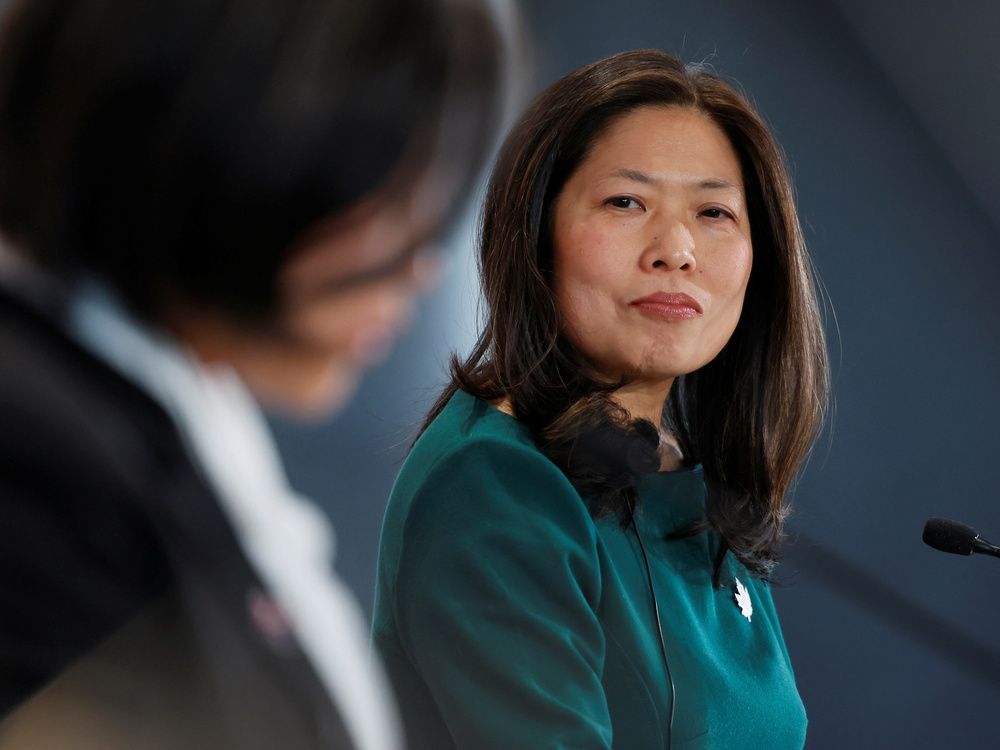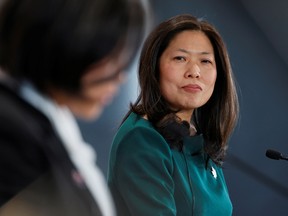Mary Ng walks out on Russian counterpart at APEC, signalling a shift in global co-operation

Policymakers such as Ng appear to have decided they don’t want to be in the room when a Russian has something to say

Article content
Just as Russia’s minister for economic development Maxim Reshetnikov was set to deliver his opening remarks at the 2022 Asia-Pacific Economic Cooperation (APEC) meeting of trade ministers on the weekend in Bangkok, Canada’s Mary Ng staged a walkout alongside trade ministers from Japan, the United States, New Zealand, and Australia.
Advertisement 2
Story continues below
Article content
“As Canada’s trade minister, it was really important that we send a message, but it was also an opportunity to encourage my colleagues to stand up for the rules-based trading system,” Ng said in an interview on May 25. “Russia’s blatant disregard for the rules and their heinous behaviour against Ukraine is not something that Canada can stand for.”
The protest was the latest example of a shift in global co-operation. For years, officials from democratic countries such as Canada and Australia had issues with fellow members of international institutions such as the International Monetary Fund and the G20, but would participate in meetings regardless. Now, policymakers such as Ng appear to have decided they don’t want to be in the room when a Russian has something to say. Finance Minister Chrystia Freeland and Bank of Canada Governor Tiff Macklem participated in a similar boycott at a G20 meeting in April.
Advertisement 3
Story continues below
Article content
That geopolitical reordering could have implications for the direction of global trade. Already, Janet Yellen, the U.S. treasury secretary, is talking about “friend-shoring,” a twist on “near-shoring” that suggests American trade policy will prioritize political and security concerns over economic efficiency. Prime Minister Justin Trudeau’s government is on board. In an address to the APEC ministers, Ng said it would be crucial to “re-build and re-imagine” trade partnerships in the post-COVID world, prioritizing inclusive trade and working to make supply chains greener and more resilient. “We need to lead with our values,” she said.
It was really important that we send a message, but it was also an opportunity to encourage my colleagues to stand up for the rules-based trading system
Mary Ng
As she loosened ties with Russia, an APEC member country, Ng reinforced other partnerships in the region, announcing Canada’s intention to join the Digital Economy Partnership agreement (DEPA), which seeks to facilitate co-operation on digital trade. (New Zealand, Chile and Singapore are the founding members.)
Advertisement 4
Story continues below
Article content
“It’s important because we need to protect our customers, we need to protect our consumers,” Ng said from Singapore, where she stopped to announce the Trudeau government’s intention to make the country an information hub between Canada and Southeast Asia. “We need to … ensure that businesses have not only the rules to operate their businesses digitally.” She hopes that the agreement will also alleviate e-commerce issues to make things easier for businesses.
On the trip, Ng also announced the creation of a Canadian Trade Gateway in Southeast Asia, the latest example of the Trudeau government attempting to use its network of trade officers to remove some of the friction from international commerce. Smaller Asian countries have emerged as important targets as relations with China have become increasingly difficult. Ng in December initiated free-trade talks with the Association of Southeast Asian Nations, or ASEAN, a 10-member trade bloc that includes Singapore, Thailand, Vietnam and Indonesia.
Advertisement 5
Story continues below
Article content
-

Why Justin Trudeau broadened his trade agenda to include ‘dusty penny’ Jamaica
-

Trudeau government stands firm on new dairy rules despite anger from U.S. milk lobby
-

New Zealand launches trade dispute against Canada in growing dairy backlash
-

‘Canada matters in all of this:’ CIBC’s Victor Dodig sees crisis as chance for us to reset ties with U.S.
Ng said she will be conducting a “design study” to figure out what sort of gateway Canadian exporters, investors and businesses will need to facilitate their exploration of opportunities in Asia, and vice versa. “Singapore is already a really important partner, and we want to use this dynamic market as a gateway to all of Southeast Asia,” Ng said.
The U.S. is also establishing new ties in the region. However, Canada was left out of the new Indo-Pacific agreement announced by President Joe Biden on May 23, raising questions about whether Canada had been snubbed. The University of Toronto’s Lynette Ong told Politico that “this is becoming a bit of a trend that the U.S. is not bringing Canada on board on a lot of Indo-Pacific agreements,” adding that “Ottawa should rightly be concerned.”
When asked whether she felt that Canada had been frozen out by the Biden administration, Ng said, “I don’t see this at all as a disadvantage,” pointing out that Canada is a member of the Trans-Pacific Partnership, while the U.S. was not.
The U.S. and Canada are integrated as trading partners, and their Asian strategies are “very complementary,” Ng said.
• Email: [email protected] | Twitter: marisacoulton
Advertisement
Story continues below









